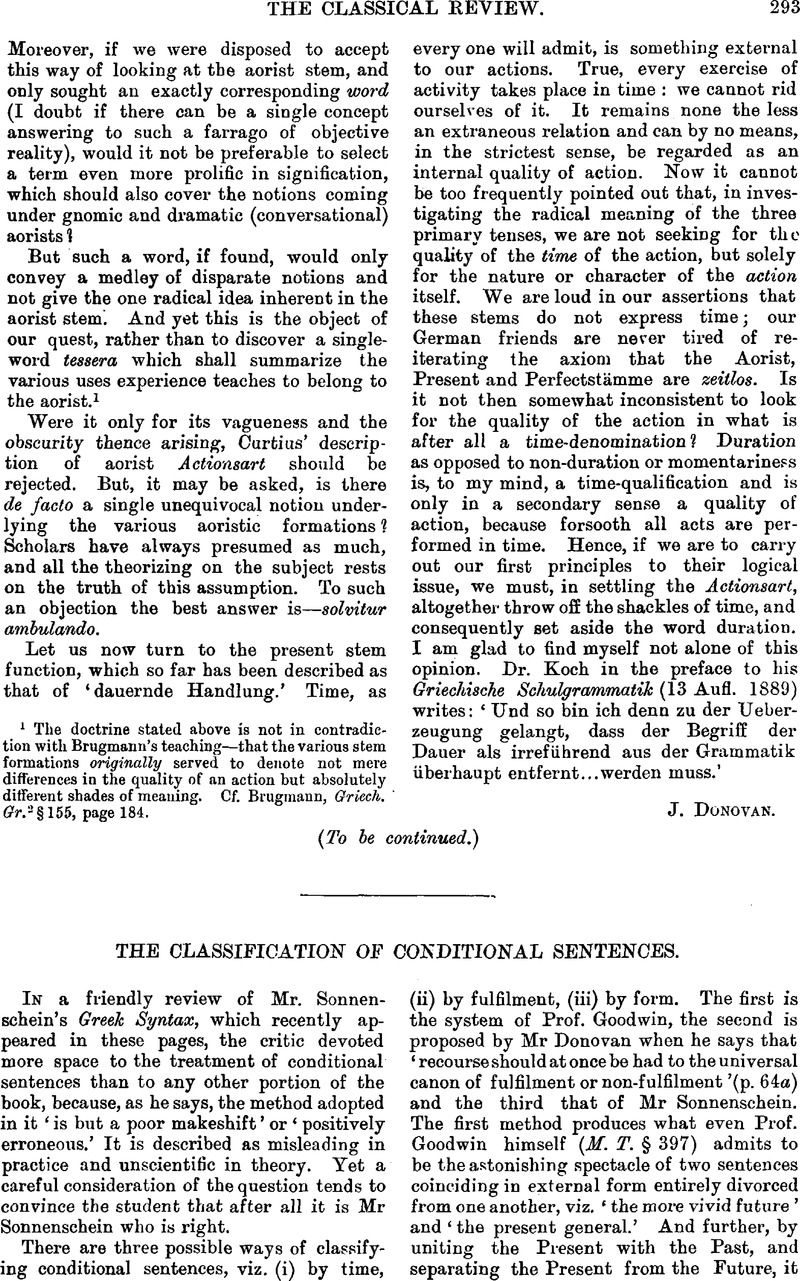Article contents
The Classification of Conditional Sentences
Published online by Cambridge University Press: 27 October 2009
Abstract

- Type
- Review Article
- Information
- Copyright
- Copyright © The Classical Association 1895
References
1 It is curious that grammarians do not appear to recognize the obvious fact that εἰυ ποήσεις ἀδικσειςdiffers from ἐὰυ ποάσης ταυτα ἀδζκήσειςin precisely the same way that εἰ ἀδικεις differs from ἐὰυ ἀδικῇς viz. the former in each case is definite, the latter indefinite. Of course in the ‘present general’ the indefiniteness is habitually indefinite frequency, in the ‘more vivid future’ it is indefinite futurity (hence Goodwin's mistake, loc. cit.). The various ‘minatory,’ ‘monitory’ or ‘modal’ theories are attempts to find some other distinction between these two forms of future conditions; in so far as these distinctions exist, they are merely accidental. Does any one doubt that ‘if you do this tomorrow at 12 o'clock precisely’ must be ε ἰ ποήσεις? Yet it is certainly not minatory, or monitory or modal.
- 1
- Cited by


